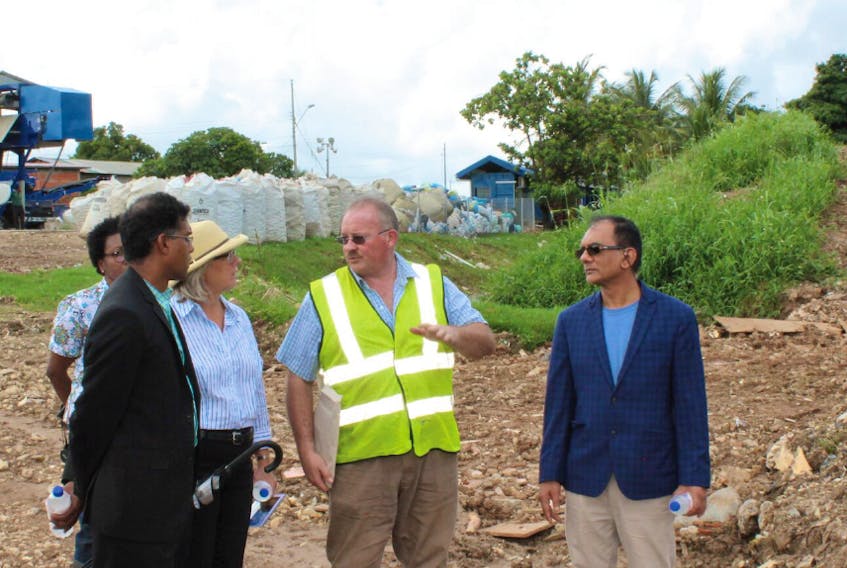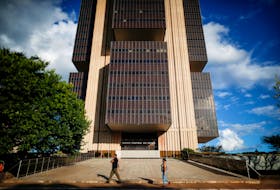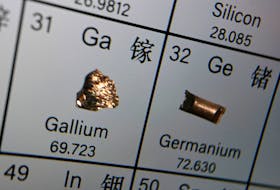Wherever there’s a landfill, there’s leachate.
It’s the liquid that drains or leaches away from a landfill, becoming composed of organic and inorganic materials, heavy metals and pathogens along the way.
With a diverse chemical makeup that includes ammonia, nitrogen and suspended solids, the black liquid has the potential to be quite damaging to the environment, especially to groundwater and nearby waterways.
Various landfill leachate treatment technologies exist, and one Newfoundland and Labrador company is testing and refining a biological process through a pilot project in the Caribbean.
Wetland Treatment Solutions (WTS), formerly known at Oceans Engineered Wetland Solutions, was contracted by the Trinidad and Tobago Solid Waste Management Co. Ltd. (SWMCOL) to test the clean technology at the Guanapo landfill.
“We’re using a combination of biological and chemical reduction to reduce the waste, transform them into other things that can be then either treated or captured in the wetland system, meaning we end up with a clean waste at the end,” explains WTS president Glenn Sharp.
The technology, which originated in Germany, uses vegetation, soils and micro-organisms to remove, transform and degrade pollutants from the leachate by transferring oxygen to the soil through plant roots, thereby creating aerobic bacteria.
Sharp says the plants actually don’t do the work, but are catalysts for the chemical process.
“The plants are acting like a pump and it’s the bacteria that consumes the waste,” he explains. “In a landfill you’re not just dealing with a simple waste like sewage, so there’s a biological and chemical interaction that we have a very specialized matrix, that’s what the plants live in and what the effluent runs through, a soil-based matrix.”
The Caribbean opportunity arose through a Newfoundland and Labrador Environmental Industries Association trade project supported by the province’s Department of Tourism, Culture, Industry and Innovation and the Atlantic Canada Opportunities Agency.
The pilot is scheduled to end in the new year, but Sharp says there’s already talk of expanding into a full-scale project valued between $4 million and $5 million. SWMCOL is already in discussions with Export Development Canada (EDC) on accessing some funds to speed up the process.
Sharp believes a recent site visit by Carla Hogan Rufelds, Canadian high commissioner to Trinidad and Tobago, to get a first-hand look at the pilot project should help grease the political wheels.
“The Canadian high commissioner had a diplomatic meeting with the prime minister of Trinidad and Tobago and several of his ministers and other diplomats, and she was talking about the pilot and from that interaction we understood the minister responsible for the landfills was on the job last Friday to view things and therefore the Trinidadians are taking note of that project and that means SWMCOL, which is a quasi-government organization, can probably access funding much easier now that there are political interests.”
But Sharp sees the pilot as a stepping-stone into the rest of Caribbean region.
“We’re hoping this project will bring us down with an office … and starting to find our own work down there on other islands and really having a Canadian presence in the Caribbean.”
In the meantime, Sharp says, they’re working with the province to develop a proof of concept in Newfoundland and Labrador in an effort to showcase the technology to the rest Canada.
Twitter: kennoliver79









